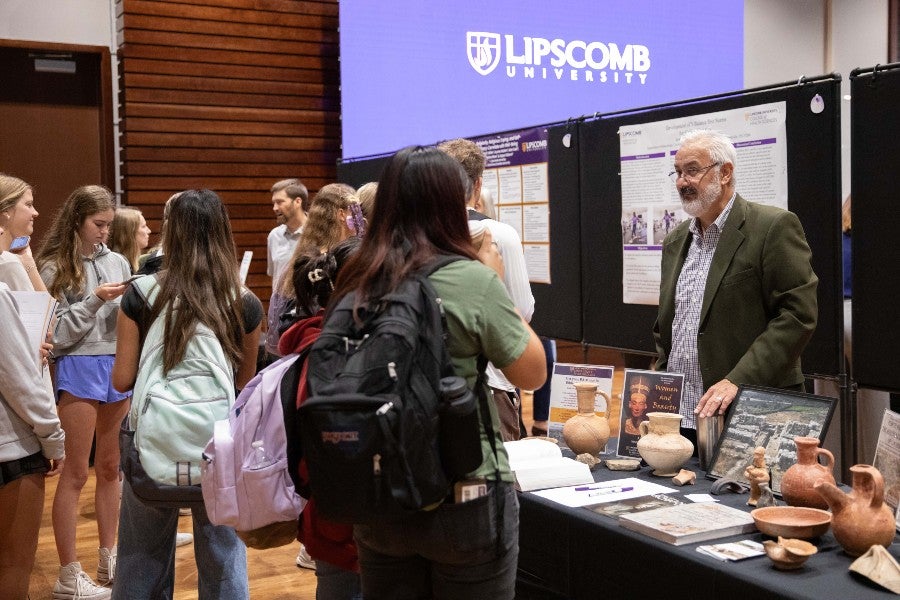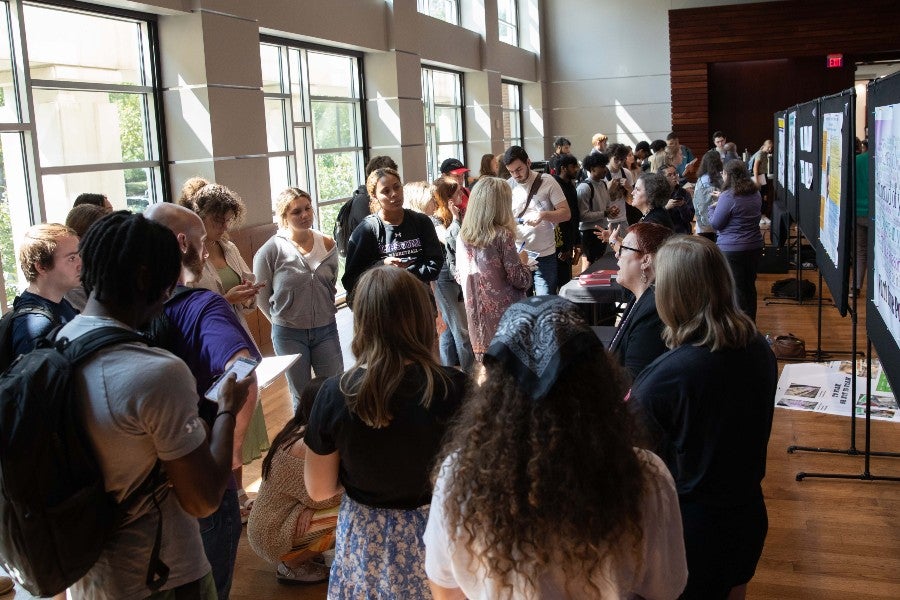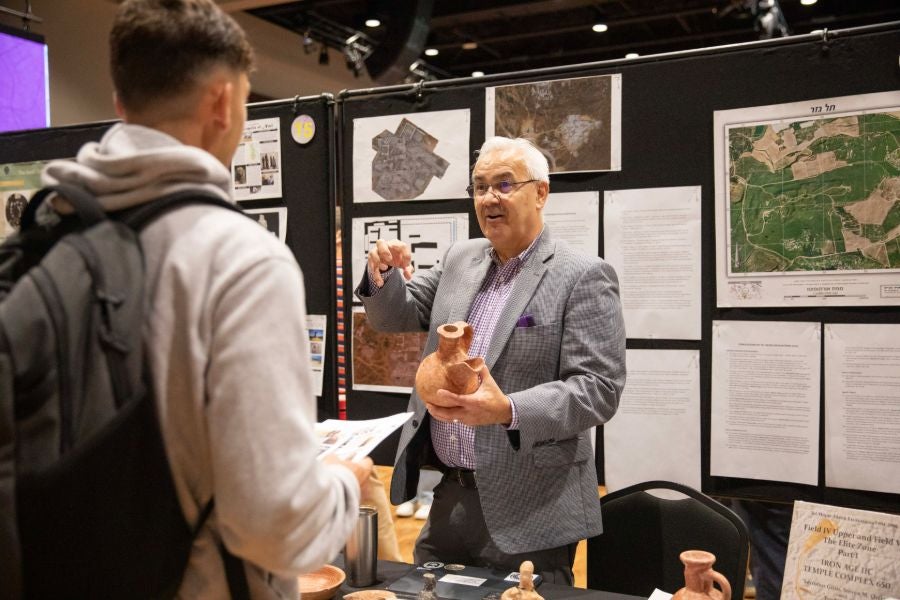Faculty Research Day 2023 features 31 faculty projects
Event focuses on dialogue and connections between all those interested in scholarly endeavors.
Janel Shoun-Smith | 615.966.7078 |

From the temples of Egypt to psychopathic traits, from molecules inhibiting fat to the role of hymnals in the 21st century, faculty researchers at the second annual Faculty Research Day on Friday, Sept. 29, shared how they are advancing new knowledge and societal change in today’s world.
The event, held in the George Shinn Center, featured 31 faculty from eight Lipscomb colleges presenting posters or oral presentations.
“The objective of Faculty Research Day is to spotlight the research and creative achievements of all Lipscomb University faculty,” said David Holmes, dean of the College of Liberal Arts & Sciences (CLAS), which sponsors the event, and special counsel to the provost on liberal arts.
“This event is an excellent opportunity to celebrate the scholarly endeavors of our faculty, to network with others who share scholarly interests and to engage in dialogue that further advances research and creativity at our institution.”

Students, faculty and staff had the opportunity to discuss research in a variety of areas including:
- Associate Professor Mark Janzen’s recording the history inscribed on a wall of the Karnak Temple in Luxor, Egypt;
- Associate Professor and Chair Kirsten Dodson’s National Science Foundation-funded research on how humanitarian engineering projects during college impact racial diversity in the field of engineering;
- Lead Faculty in Undergraduate Psychology Jaclyn Spivey’s student-run project on adolescent crime during the COVID-19 pandemic;
- Professor of Biology and Associate Chair of Biology Beth Conway’s work to find better therapy for triple negative breast cancer;
- Professor and Director of MLL/ELL program Jeanne Fain’s in-depth visual analysis of eight picture books with a focus on analyzing children’s homes and environment in the midst of an immigration journey.
- Professor of Chemistry Steve Opuku-Duah’s analysis of water crises in the USA and around the globe, with confirmed, published results that orthophosphate inhibitors can reduce Pb and Cr corrosion and eliminate scaling of water in distribution pipes.

Various faculty who have authored books were on-hand to share their academic scholarship with interested students. A few of the authors who participated were Emily Mofield, curriculum and learning supports in gifted education; Tim Johnson, military history; Lauren White and Scott Sager, faith and Biblical study; and Jenny Snodgrass, music theory and education.
A new feature of the event this year included four faculty making oral presentations:
- White, assistant professor of theology and author of Flesh Made Word: The Protestant Interpretation Problem and an Embodied Hermeneutic, presented research related to her book published by Fortress Academic in 2022;
- Andy Borchers, professor of management, who recently completed a sabbatical as the first visiting faculty at Heritage Christian College in Ghana, Africa, presented research on the purpose and outcomes of faculty sabbaticals;
- Benjamin Blasko, associate professor and director of instrumental studies, presented on two projects to record the music of the Barcelona Clarinet Players and the North Texas Wind Symphony; and
- Kyle Brawner, assistant professor of biology, presented his research of necrotizing enterocolitis, the leading cause of gastrointestinal morbidity and mortality among premature infants. His ongoing research in this area earned him a 2021 Christian Scholars Foundation-Emerging Scholars Network research grant as well as one of Lipscomb’s 2022 Faculty Summer Research grants.